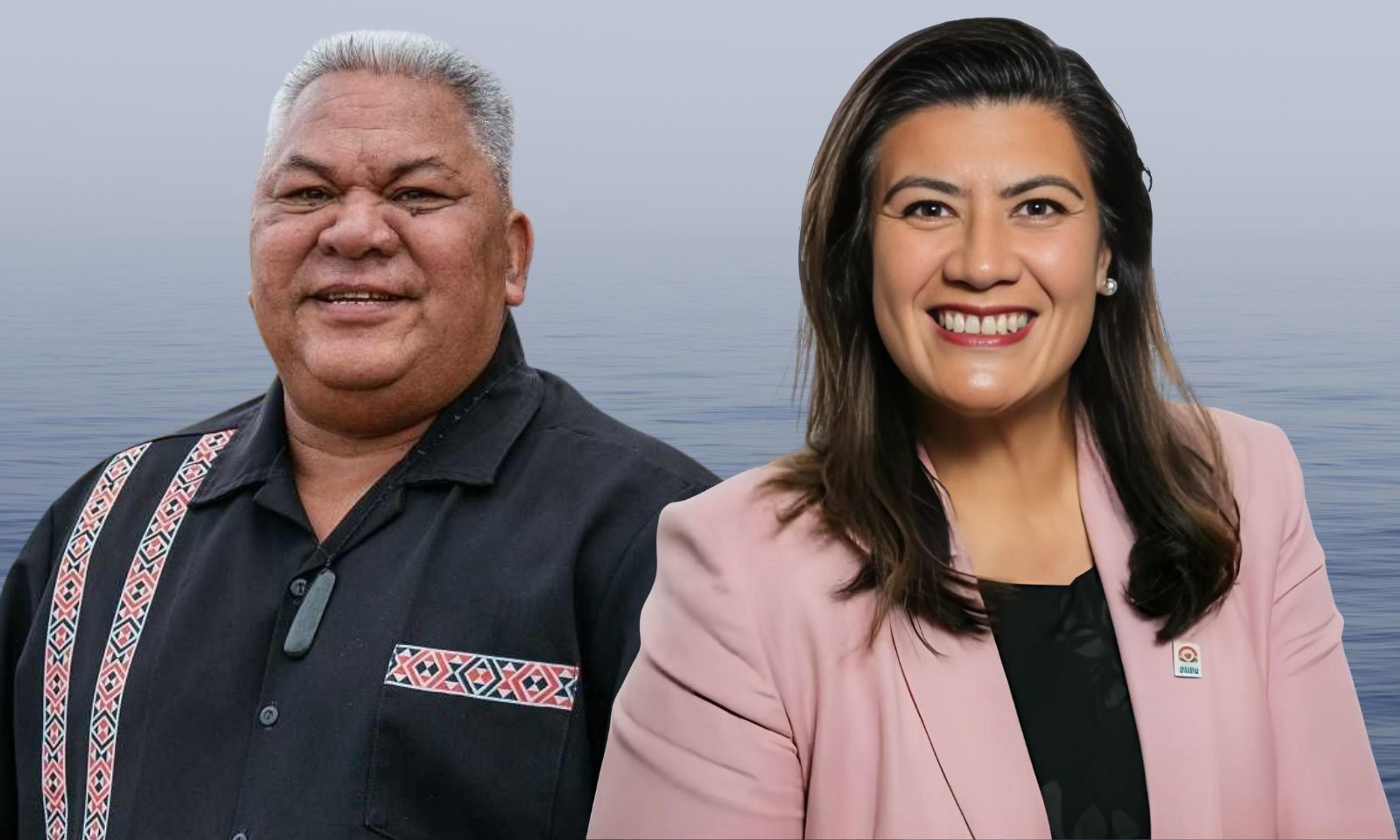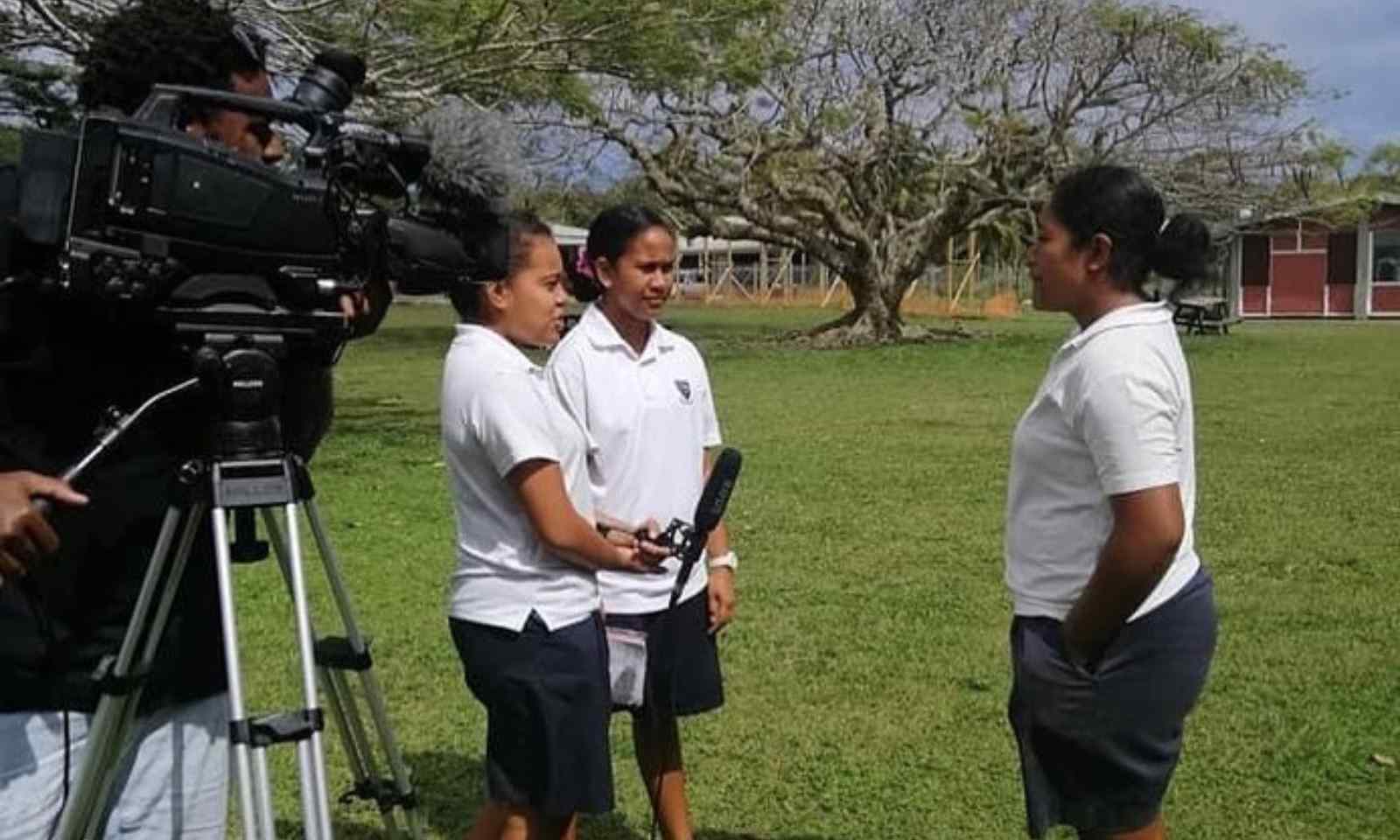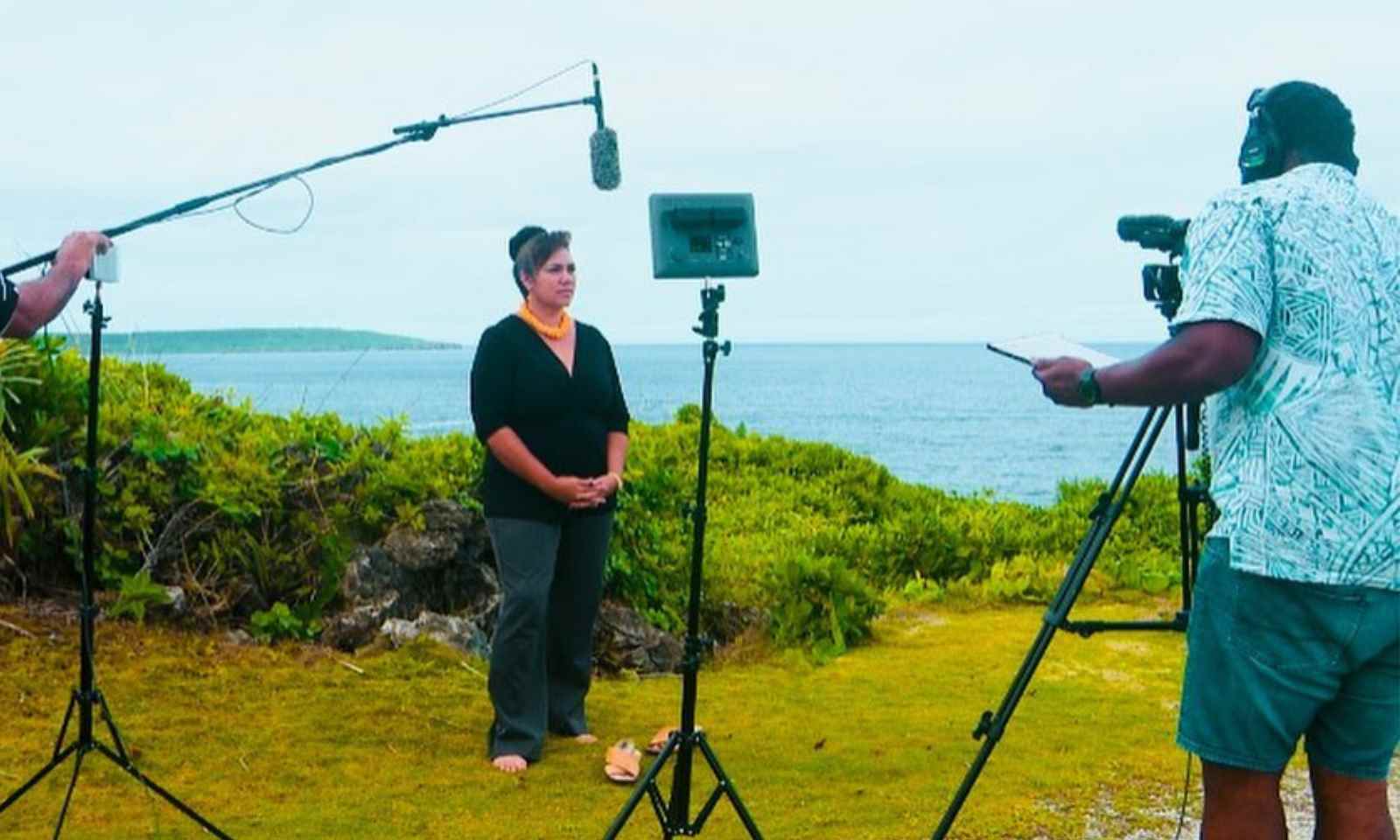

Eroti Navuku working at the BCN studios.
Photo/ Supplied
Niue Language Week: PMN visual storyteller reflects on his time working in Niue
Eroti Navukus’ five years working in Niue was the first time he had left Fiji.



Why Wallabies are prioritising Flying Fijians over the Lions

Tongan royals to celebrate age-old ties with Fiji at high chief’s installation ceremony

Young, proud, and ‘ready to roll’: Sāmoa women pursue glory


‘Dogs deserve better’: Councillors support campaign to address roaming dog crisis

Why Wallabies are prioritising Flying Fijians over the Lions

Tongan royals to celebrate age-old ties with Fiji at high chief’s installation ceremony

Young, proud, and ‘ready to roll’: Sāmoa women pursue glory
It was the first time leaving his home of Fiji, heading to an island he had never heard of before. PMN visual storyteller Eroti Navuku had worked for the FBC and Fiji Television as a camera operator before hearing of an opportunity to work in Niue.
An opening at Niue’s BCN (Broadcasting Corporation of Niue) caught the attention of Navuku, who decided to leave Fiji for the first time ever.
He says he didn’t know a thing about Niue or where it was, but the opportunity excited him.
“I actually had no idea about Niue,” he chuckles.
“I was like Niue? Where’s that?! Bro honestly I thought it was in New Zealand, because they use New Zealand currency. But I didn’t realise it was closer to Fiji than New Zealand!”
Navuku says his first time seeing a Niuean was at the Auckland International Airport, mistaking them for Samoans. He chuckles at his first impressions of the Niue people, as once he touched down in Niue - the head of immigration knew Eroti’s name.
“When I got in, she saw my passport and went ‘oh you’re Eroti?’ and that was funny man, something I’ll never forget!”
Eroti started as a camera op for BCN’s news team, and coming from Fiji, he immediately noticed the change of pace in the newsroom. He says things were a lot more relaxed in Niue compared to what he was used to working in Fiji.
He says he found difficulties in the first year, as he didn’t know many people on the island. But, Navuku praises the hospitality of Niueans every time he goes to shoot stories.

Eroti Navuku on a video shoot with students at Niue High School. Photo/ Supplied
“Niueans are really nice people, I’d go for showdays I’m there at every show day and when I’d go home, I’d go with some food!”
While in Niue, Eroti found an urge to learn vagahau Niue through his work at BCN. He explains there are news broadcasts in Vagahau Niue and in English. One co-worker, Tifaga Tupuiliu who is Samoan, had spent most of his life in Niue and could speak the language fluently.
Eroti mentions his editor Trevor Tiakia would produce the Vagahau Niue news broadcast, but on days where he would be away, Eroti would step in and help with the broadcast.
“It would take me about four hours to figure out what they were saying, Trevor would usually stay back and check or tell me ‘they’re talking about this or this’. And also Esther Pavihi was really helpful
“So I did that for five years and I eventually clicked on what they were talking about. And by the end of my fifth year I was faster editing the Vagahau Niue news.”
Removed from Fiji, Eroti says his interactions with the Niue culture was something new to him, but also knew to respect the cultural differences.
“For islanders, you just have that respect and understanding of cultures. So it was totally different from the Fiji culture, but I understood it was their culture.
“Me in Niue, I was a guest. So every time I’d go for shoots, it was their culture and I’m a guest on their land. It’s such a small community but Niueans are so proud of their culture.”
He reflects on the Vagahau Niue on the island as something that is a privilege for young learners, as it is different for where Eroti is from.
“They learn Vagahau Niue at schools now, and you don’t have that in Fiji. When I grew up if you spoke in Fijian you would get in trouble. So that’s why I always tell the Niueans they are so lucky they value their culture.
“That’s what keeps it alive.”
Now in New Zealand, Eroti says he holds Niue close and will make time to support the country in any way he can.
“I’m always proud of Niueans. When I stayed there, I always played for Avatale (in rugby) so I always rep them! But I’ll always have time to support Niueans.
“They’re really nice people especially if you get involved with their community work, if they see you helping out - they’ll go tooth and nail to support you.”

Eroti Navuku behind the camera in Niue. Photo/ Supplied.